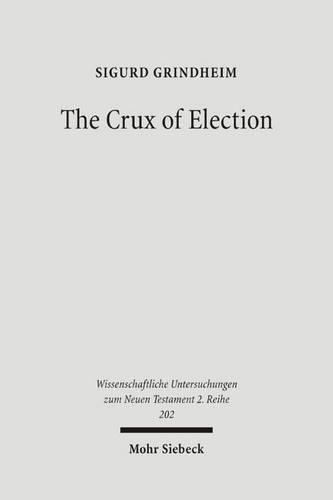Readings Newsletter
Become a Readings Member to make your shopping experience even easier.
Sign in or sign up for free!
You’re not far away from qualifying for FREE standard shipping within Australia
You’ve qualified for FREE standard shipping within Australia
The cart is loading…






This book contributes to the discussion of the relationship between Paul and contemporary Judaism by investigating Paul’s understanding of Israel’s election. In two passages Paul rejects election-based privileges as basis for confidence before God: 2 Cor 11:16-12:10 and Phil 3:1-11. Sigurd Grindheim argues that, for Paul, the elect identity can only be rightly conceived of as entailing conformity to Christ and his cross. Jewish election-based confidence is critiqued because it does not conform to this pattern, and it must therefore be rejected as incompatible with the mind-set that is modeled after Christ. As a control of these results, this book also contains an exegesis of Rom 9-11, where Paul approaches the question of Israel’s election from a more positive angle. In light of the results reached, the study concludes with a critique of the new perspective on Paul.
$9.00 standard shipping within Australia
FREE standard shipping within Australia for orders over $100.00
Express & International shipping calculated at checkout
This book contributes to the discussion of the relationship between Paul and contemporary Judaism by investigating Paul’s understanding of Israel’s election. In two passages Paul rejects election-based privileges as basis for confidence before God: 2 Cor 11:16-12:10 and Phil 3:1-11. Sigurd Grindheim argues that, for Paul, the elect identity can only be rightly conceived of as entailing conformity to Christ and his cross. Jewish election-based confidence is critiqued because it does not conform to this pattern, and it must therefore be rejected as incompatible with the mind-set that is modeled after Christ. As a control of these results, this book also contains an exegesis of Rom 9-11, where Paul approaches the question of Israel’s election from a more positive angle. In light of the results reached, the study concludes with a critique of the new perspective on Paul.